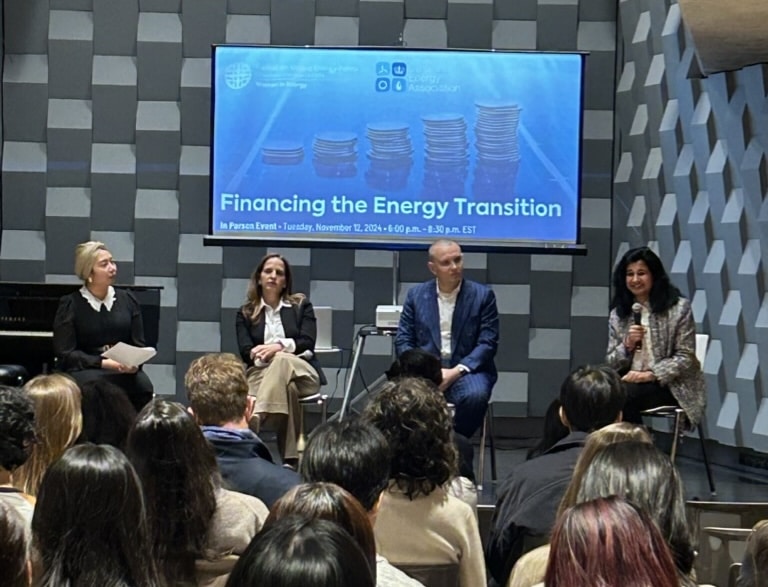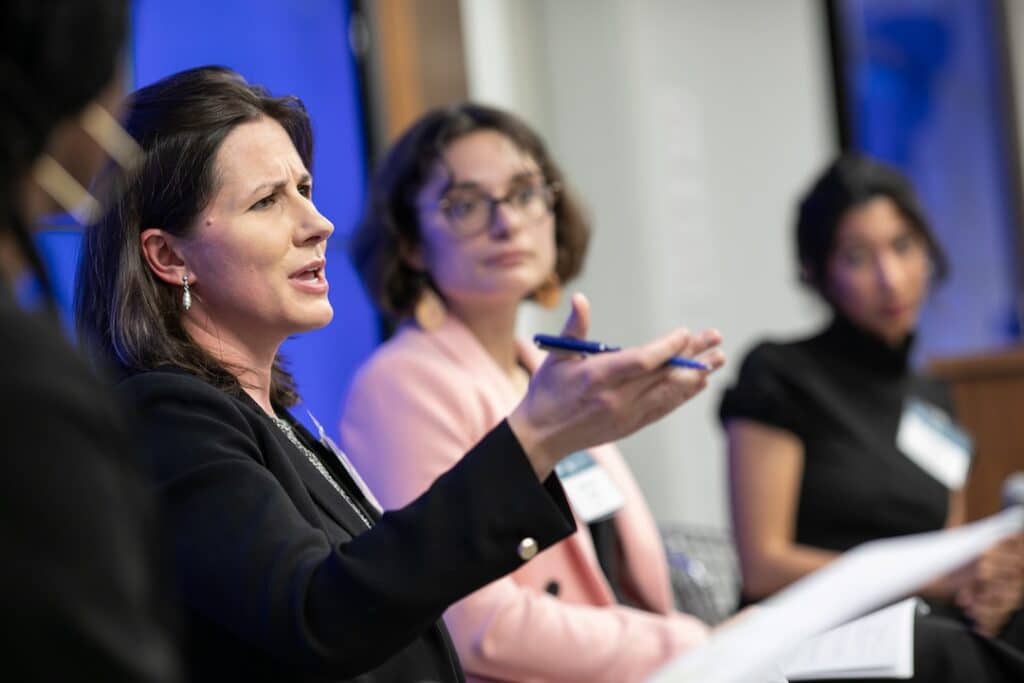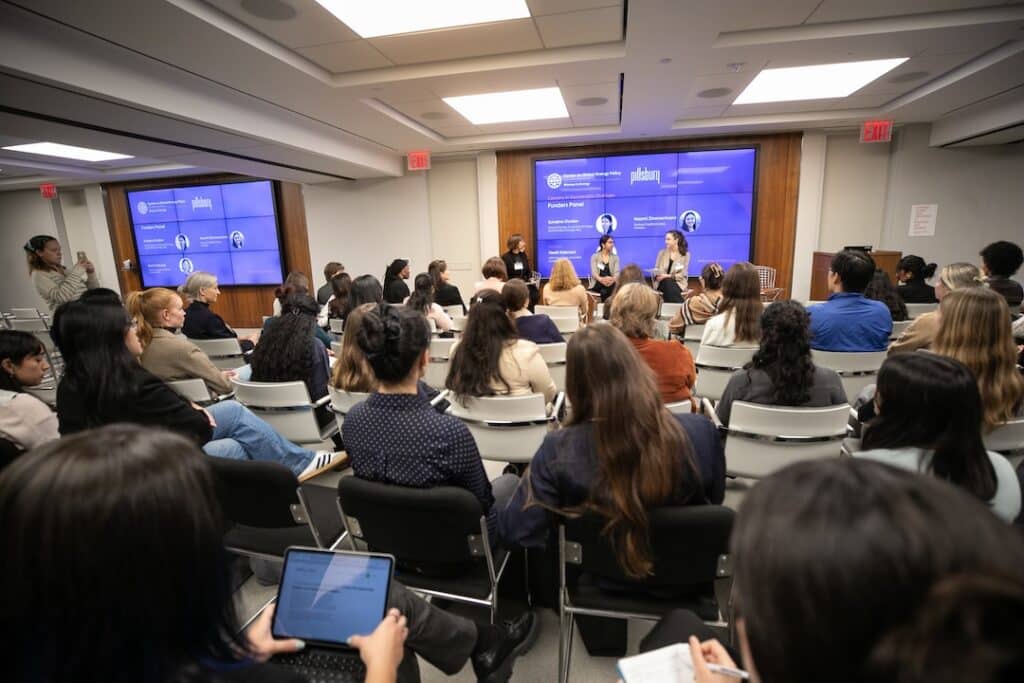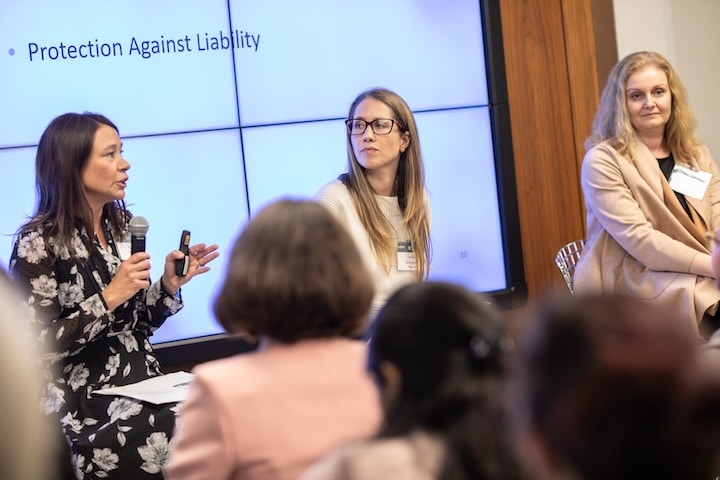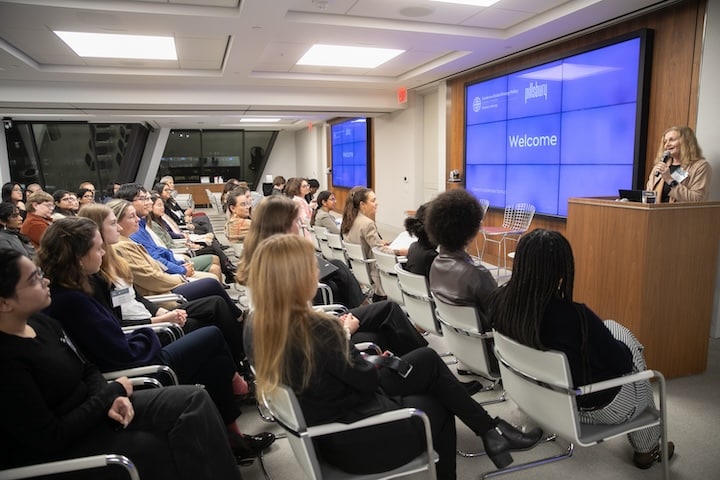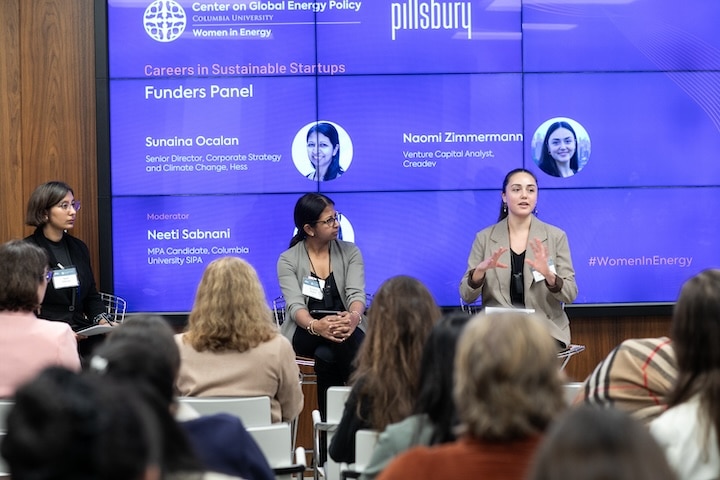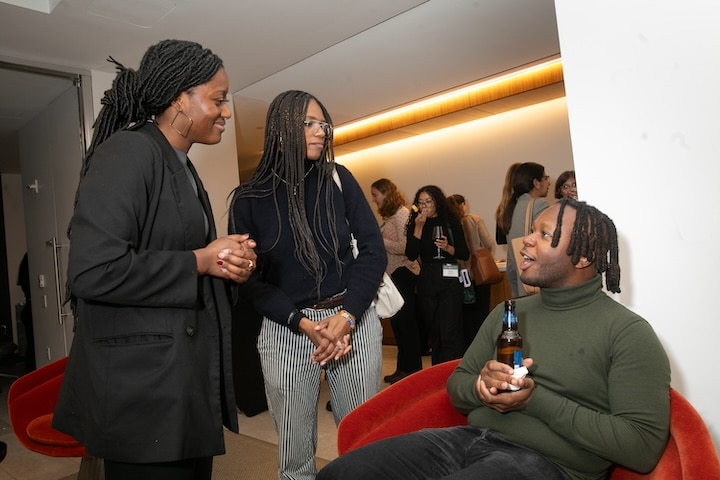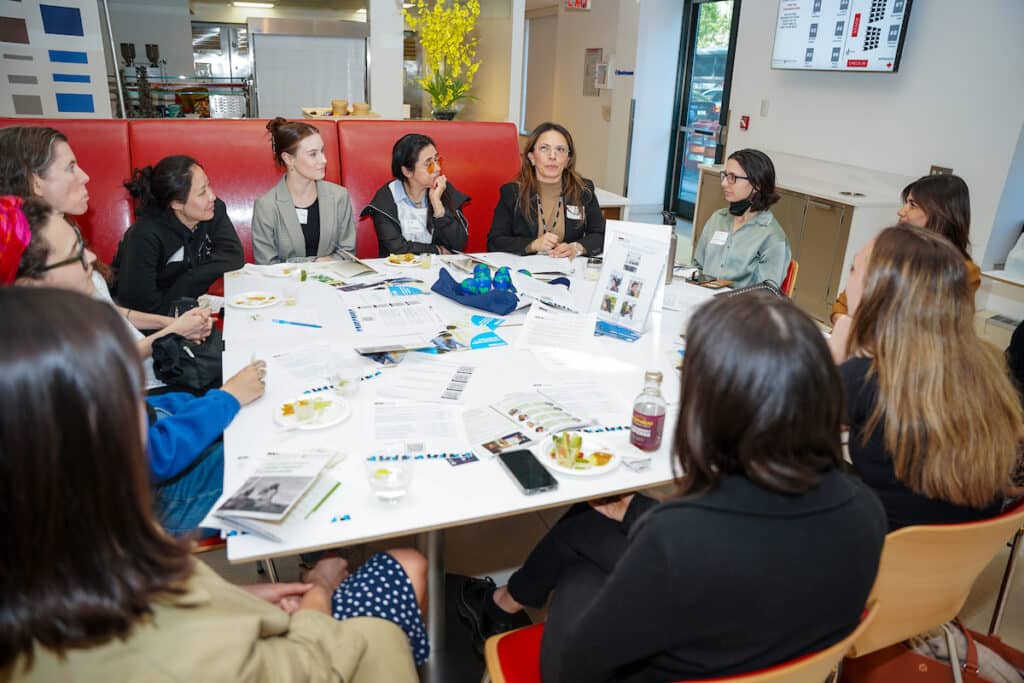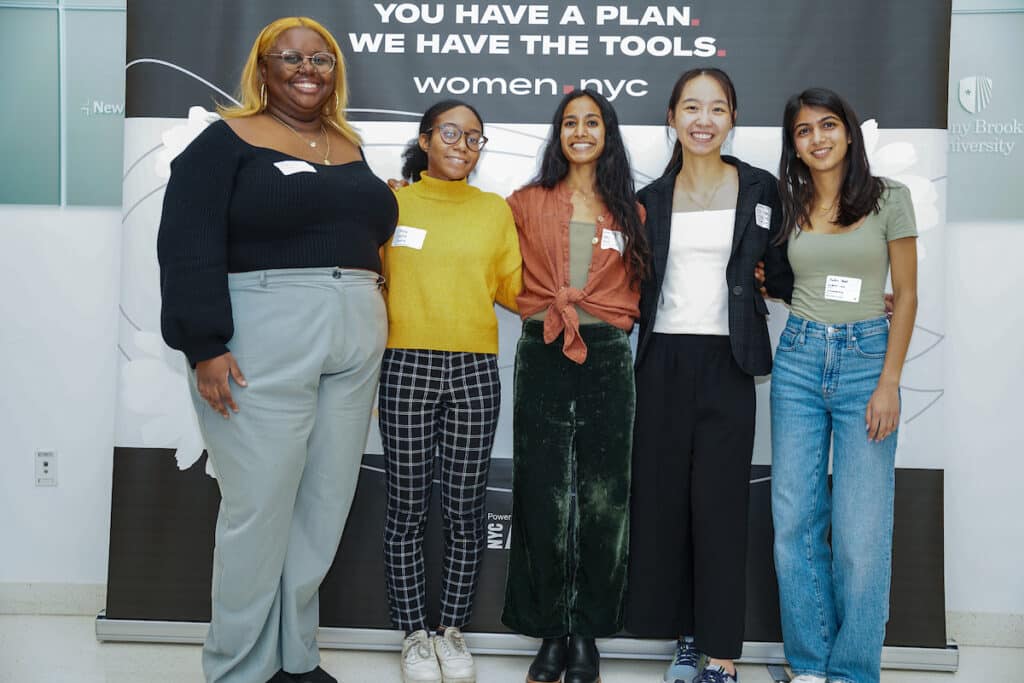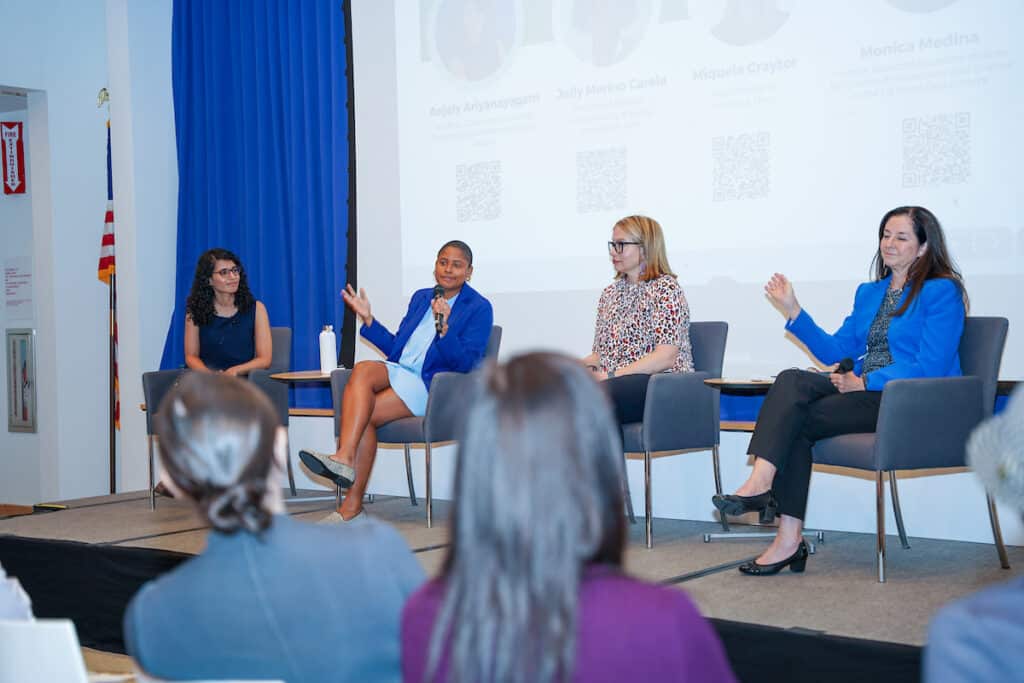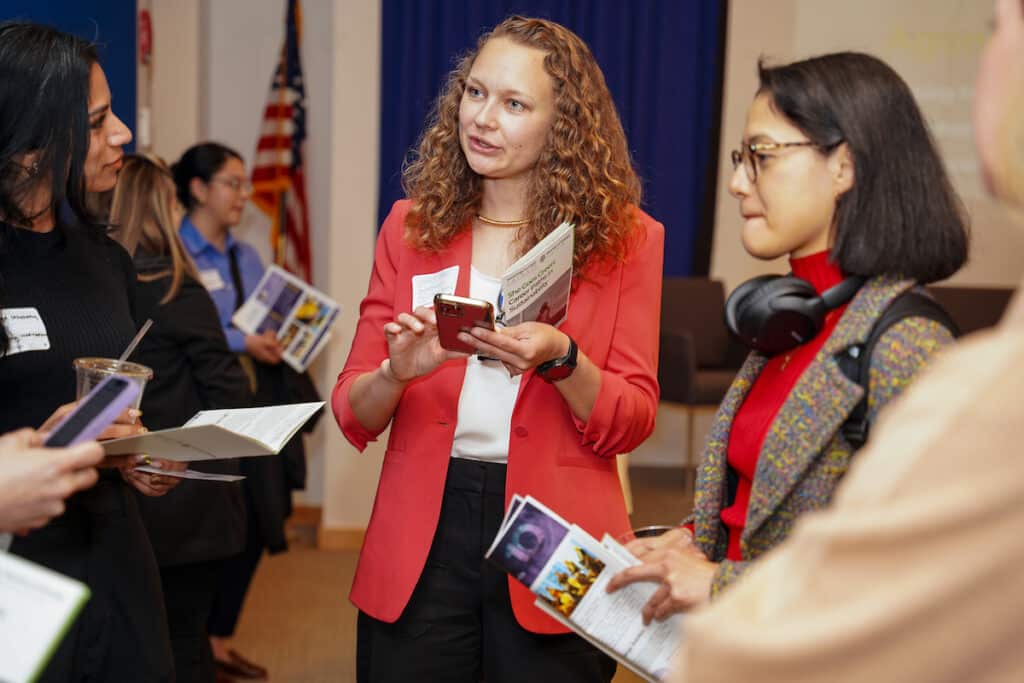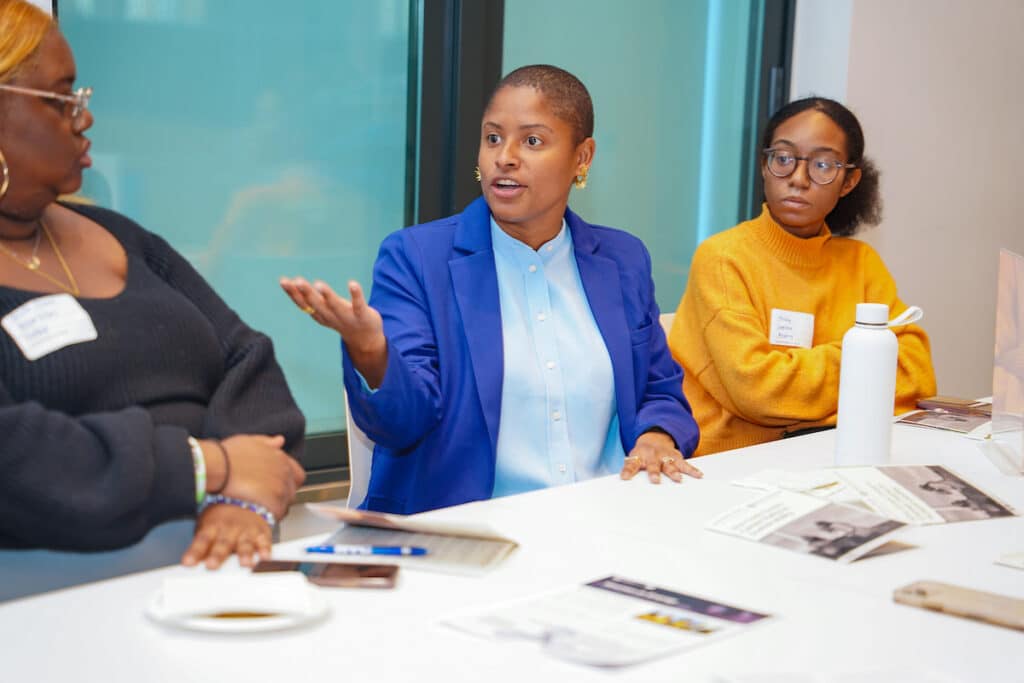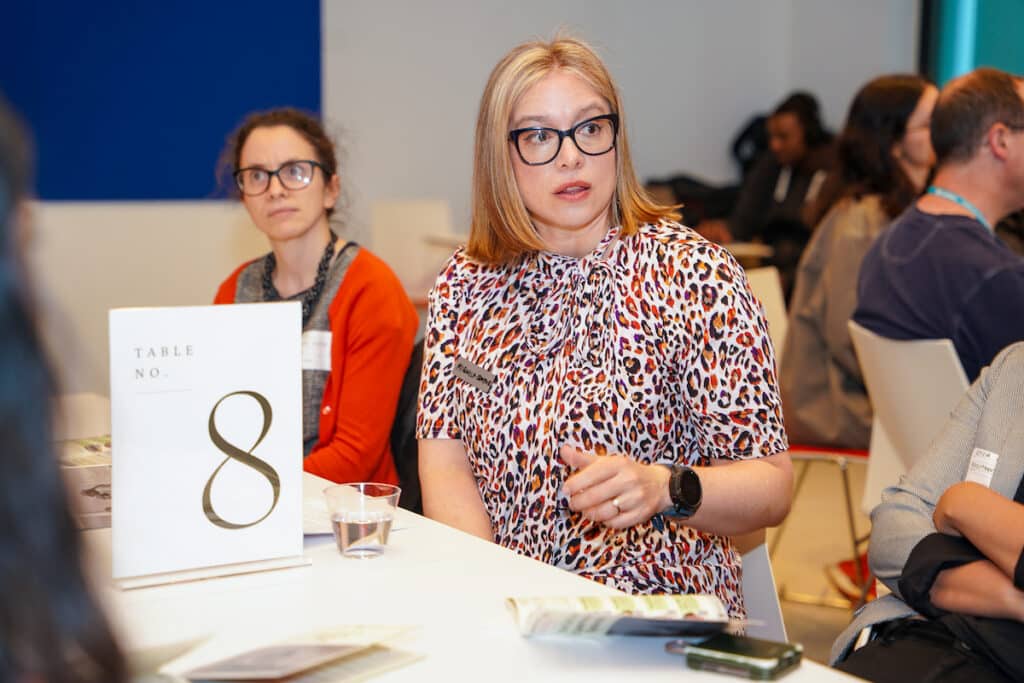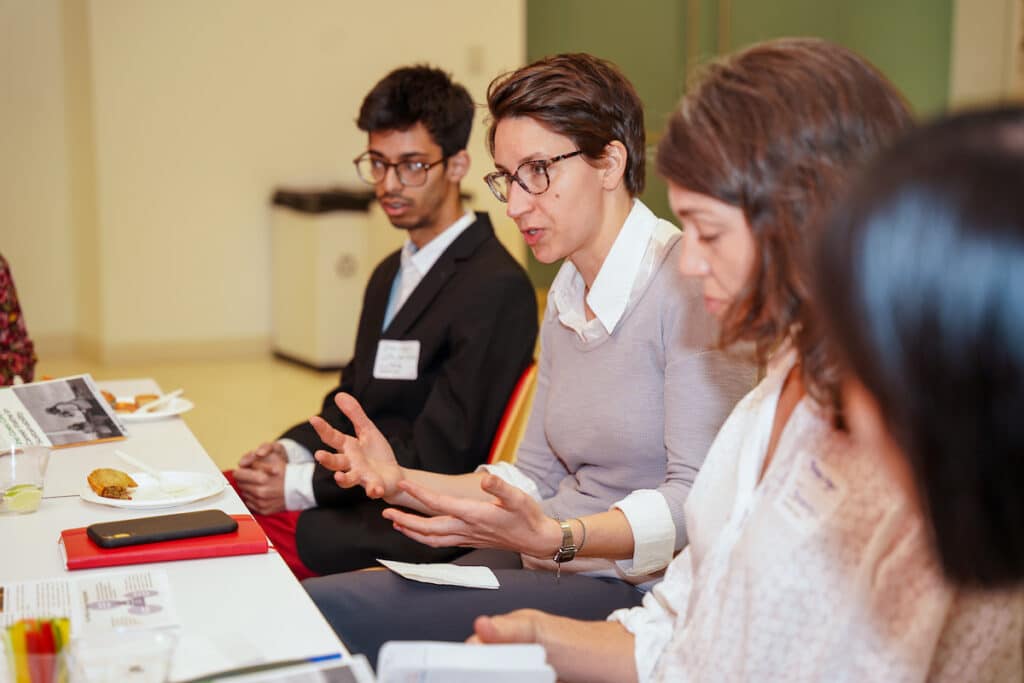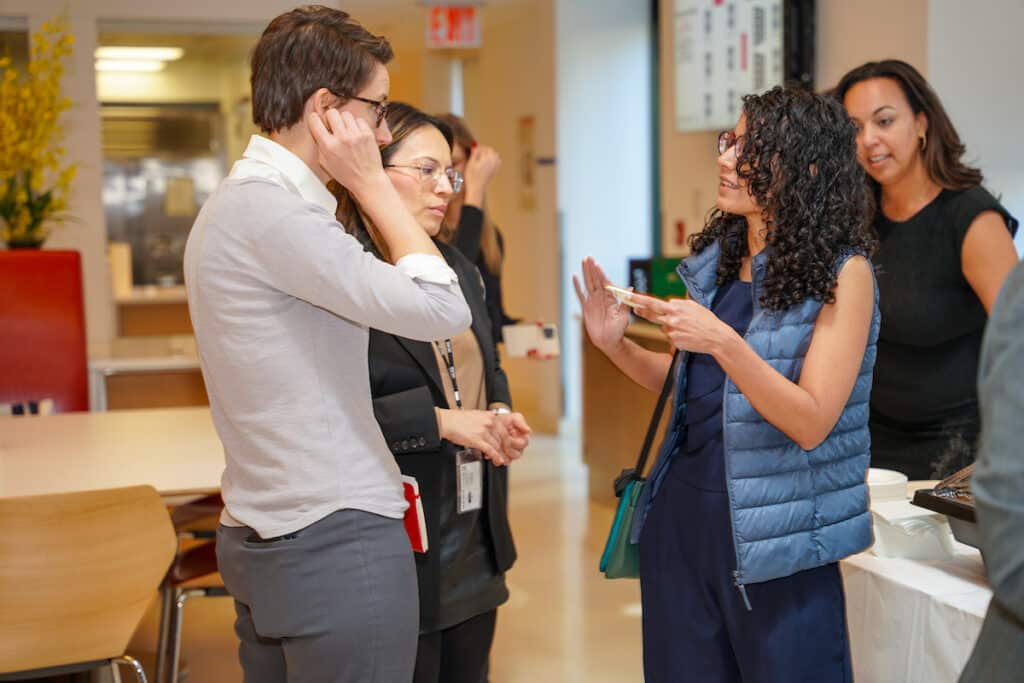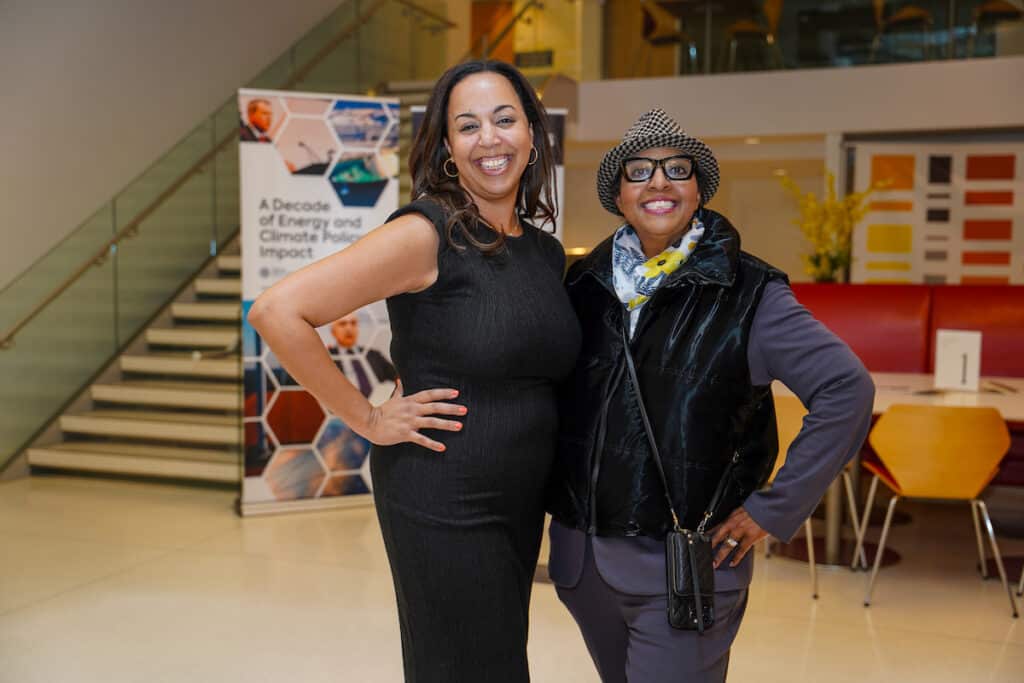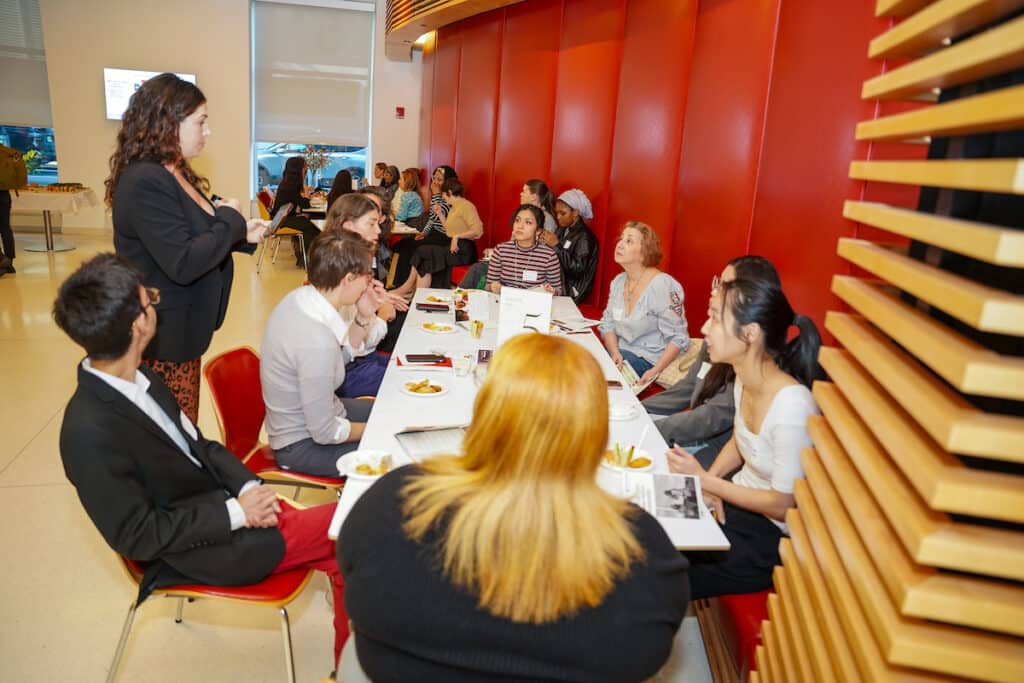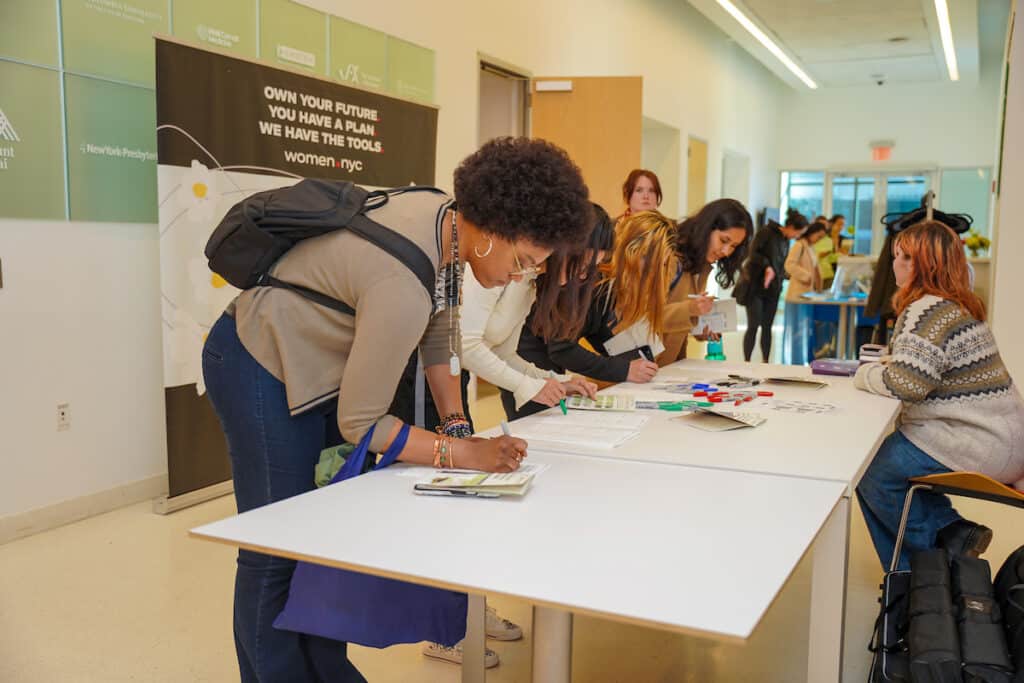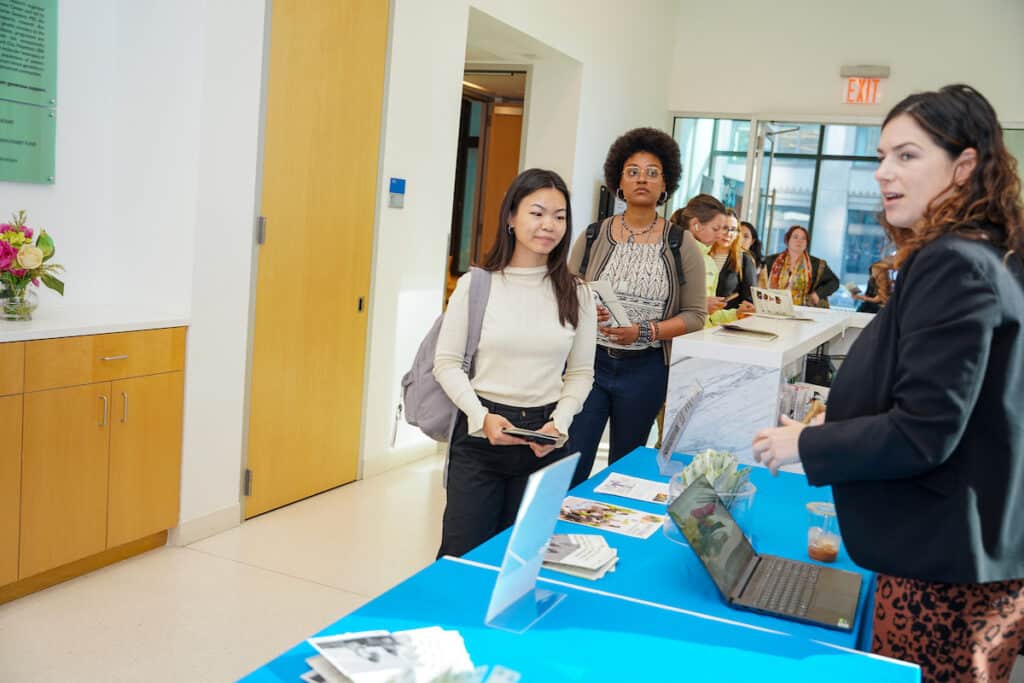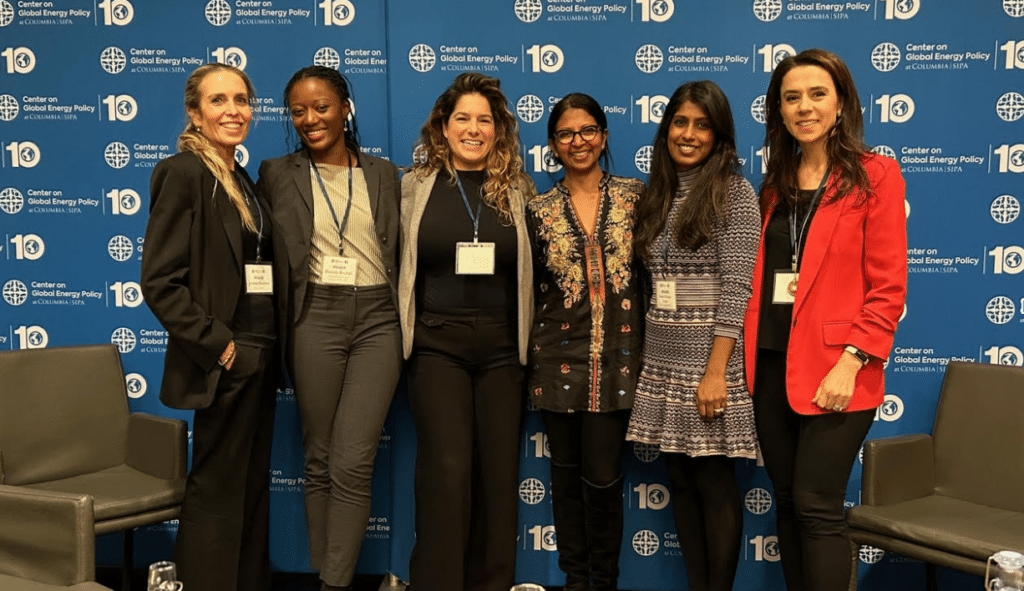
The Women in Energy initiative at the Center on Global Energy Policy, Columbia University SIPA, hosted an event titled “Student Roundtable with Career Coach Pam Brown” on Oct. 24, 2025. The event provided Columbia students the opportunity to engage directly with Pam, a seasoned career coach and leadership expert, for a conversation on searching and planning your career in today’s evolving professional landscape.
The main questions and takeaways from the event are as follows:
1. How should international students frame their career search strategy?
The career path should be conceptualized as a “jungle gym,” not a ladder. The goal is to secure the best possible role given current circumstances, including the economy, life stage, and location. Play the long game by identifying career goals and acquiring the necessary skills to achieve them. Consider taking a “side gig” to make money while awaiting more desirable opportunities. Spend your time building and growing a network of contacts.
2. What are the tactical steps for identifying and engaging companies that may sponsor?
Look for job postings that explicitly mention STEM OPT, H-1B, or “visa sponsorship available.” A recruiter who proactively asks about your work authorization type (instead of dismissing the profile) is often a good sign. Companies that participate in university career fairs with a diverse talent focus (e.g., international student mixers) suggest a willingness to hire international talent. Focus on huge companies or very small companies, as these extremes are most likely to sponsor.
Students can use resources like myvisajobs.com to see where people have been hired via CPT/OPT. (Curricular Practice Training/Optional Practical Training) Avoid any posting that specifies “Must be U.S. citizen or permanent resident” or “We do not sponsor work authorization now or in the future” or phrases like “No OPT/CPT, no H-1B transfers.” Ask directly to save time: “Can you share whether your company supports employment-based visa sponsorship for international students on F-1 OPT/STEM OPT?” Unless otherwise stated, it is recommended to assume the company does sponsor visas and proceed.
3. How can students build meaningful connections through networking?
Networking is centered on building relationships, not on immediately acquiring something. Start with warm leads, such as classmates, friends of friends, family, professors, or alumni. Use sincere flattery and genuine interest to initiate conversations, such as: “Your career is so impressive! I would love to ask you questions, see how you did what you did, etc.” If you meet someone briefly, send an immediate follow-up message (e.g., on LinkedIn) stating that you’d love to connect further and requesting 15 minutes to learn more about their background. Nurture the relationship by sending articles or notes about something that reminds you of them, such as sending an article about golden retrievers if they mentioned having one. Make use of university career offices (since students pay for them) and network with international student alumni.
4. How should candidates market themselves when pivoting to a new role?
Be authentic and be yourself, as this attracts people who will appreciate you. If applying to a role unrelated to your study field, you must “bridge the gap” for the recruiter. The recruiter is often looking for the most efficient way to make an appropriate hire, so you must make the connection for them. Use the specific “language” of the job description in your resume and, crucially, your cover letter. Clearly articulate your transferable skills.
5. What common mistakes should international students avoid in the job search?
Try to avoid the following: not engaging or speaking up due to concerns with language skills, being dishonest about citizenship, having too narrow a focus in the job search, and being “overzealous” or repetitive in professional interactions.

